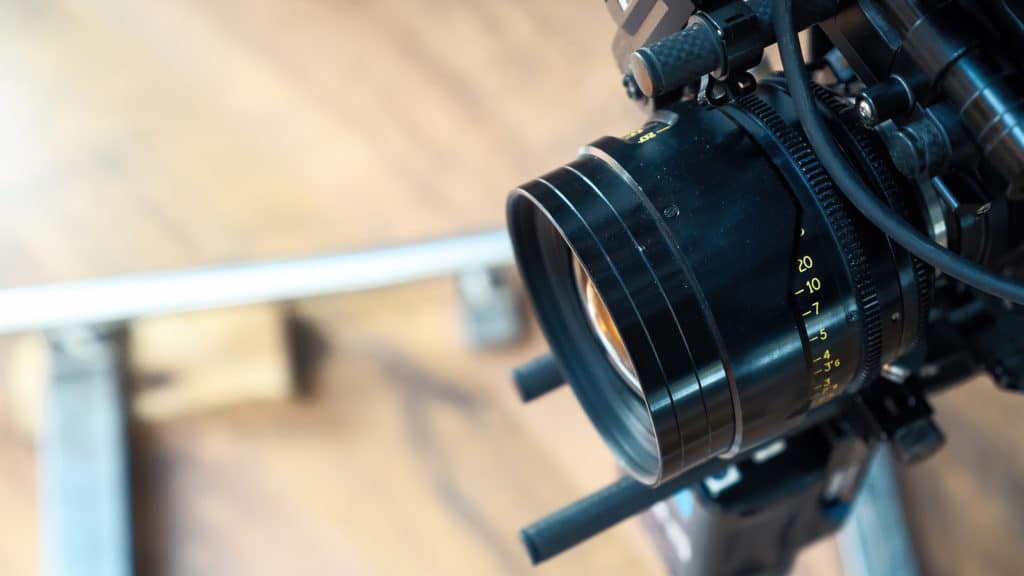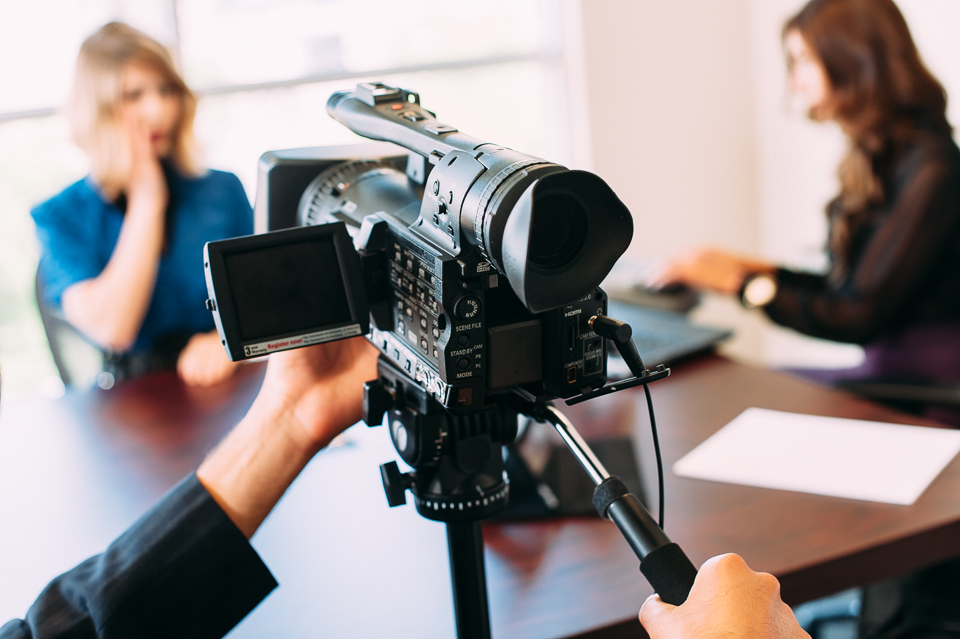The Significance of Lawful Video Clip Depositions in Modern Legal Providers: What You Should Know
Lawful video clip depositions have actually come to be necessary in today's legal landscape. They supply a multidimensional sight of witness testimonies that standard transcripts merely can not match. By recording both verbal and non-verbal interaction, these depositions improve the overall understanding of a witness's trustworthiness. However, the performance of video depositions pivots on various variables, including conformity with legal requirements and finest methods (legal video depositions). Discovering these aspects exposes their true value in modern-day lawful solutions
What Are Lawful Video Depositions?
Legal video clip depositions serve as a vital tool in the lawsuits process. They entail videotaping witness statements in a video clip format, capturing both non-verbal and verbal communication. This method permits lawyers to record the temperament, expressions, and responses of witnesses, giving a richer context for the testament. Usually performed in a controlled setting, these depositions are led by attorneys who ask concerns while a court press reporter documents the discussion. The resulting video can be critical for trial preparation, as it makes it possible for attorneys to assess the trustworthiness of witnesses and fine-tune their strategies. In addition, legal video depositions can be utilized in various lawful contexts, varying from civil disputes to criminal instances. The auditory and aesthetic elements of video depositions boost the presentation of evidence, making it a vital component in the contemporary legal landscape. Overall, they add substantially to the effectiveness and effectiveness of lawful process.

Advantages of Video Clip Depositions Over Conventional Methods
Video depositions provide countless benefits contrasted to traditional techniques of taking witness testaments. One significant advantage is the capability to record both audio and visual aspects, supplying a much more detailed record of the witness's declarations. This double layout enhances clarity and permits lawyers to reference certain nuances throughout trial prep work. In addition, video clip depositions assist in remote participation, making it much easier for witnesses who may be not available for in-person looks due to geographical restraints or health issues.Moreover, video depositions can speed up the total deposition procedure, reducing the moment and costs related to traveling and logistics. They additionally boost accessibility, as tape-recorded depositions can be easily shared amongst legal groups and referenced at any moment. This convenience adds to far better situation monitoring and preparation. Generally, video clip depositions stand for a contemporary, reliable method to gathering witness testimonies, straightening with the evolving needs of the lawful career.
The Role of Body Movement and Tone in Testimonies

In legal video depositions, body language and tone play important duties in sharing a witness's reliability and trustworthiness. Nonverbal cues can provide understandings right into a witness's emotional state, affecting exactly how their testament is perceived. Understanding the effect of these elements is necessary for jurors and lawyers alike when evaluating the dependability of a statement.
Nonverbal Interaction Insights
While verbal interaction is often highlighted in legal testaments, nonverbal cues such as body language and tone play a crucial duty in conveying trustworthiness and emotion. Observers of depositions may note that a witness's position, gestures, and face expressions can considerably affect assumptions of reliability. For instance, regular eye call may indicate confidence, while staying clear of look can suggest dishonesty or discomfort. The tone of voice-- its speed, volume, and pitch-- can give sensations of sincerity or uncertainty. Attorneys must be attuned to these nonverbal signals, as they often offer important context that matches spoken words. Comprehending these subtleties can boost the efficiency of depositions and influence the outcome of lawful proceedings.
Psychological Tone Impact
The psychological tone communicated throughout legal statements considerably impacts just how a witness is perceived. Body language, vocal inflections, and faces play vital duties in forming the story of a testament. A witness showing self-confidence with consistent eye get in touch with and a calm tone can instill a sense of integrity and engagement. Alternatively, signs of stress and anxiety, such as fidgeting or an unstable voice, might lead to suspicion regarding their account. The subtleties of emotional expression can affect the interpretation of facts, making it crucial for legal professionals to identify these hints. In video depositions, the aesthetic and acoustic parts combine, highlighting the value of emotional tone in sharing genuineness and truthfulness within the lawful procedure.
Reliability and Dependability
An important consider establishing reliability and dependability throughout testaments hinges on the witness's body movement and tone of voice. Viewers usually rely on non-verbal signs-- such as eye call, pose, and motions-- to analyze a witness's sincerity. A witness who maintains eye get in touch with and shows open body language may be viewed as even more reputable and honest than one who prevents eye call or appears closed off. Furthermore, intonation plays a crucial role; a constant, tranquil tone can reinforce the credibility of the statement, while fluctuations in pitch or quantity may increase doubts. Ultimately, the combination of body language and vocal tone considerably affects exactly how a witness's statements are obtained and analyzed in a legal context.
Finest Practices for Conducting Video Clip Depositions
Conducting video clip depositions calls for cautious preparation and investigate this site implementation to guarantee a clear and reliable discussion of testimony. Initially, it is vital to select a peaceful, well-lit location to decrease disturbances and secure ideal video clip high quality. The devices should be checked ahead of time, including electronic cameras, microphones, and illumination, to stay clear of technological issues during the deposition.Next, events entailed need to evaluate the style and procedures ahead of time, making certain that everyone understands their duties. The deponent ought to be oriented on the procedure, including just how to respond clearly and concisely.Additionally, preserving a specialist attitude throughout the session is essential. This consists of abstaining from talking over each other and confirming that all inquiries are guided appropriately. Lastly, it is essential to tape the deposition in a format that permits easy playback and evaluation, preserving the honesty of the statement for future usage.
Legal Considerations and Compliance Issues
How do lawful factors to consider and compliance issues impact the efficiency of video depositions? Lawyers must navigate a complex landscape of guidelines, guaranteeing that video Full Article clip depositions adhere to administrative rules and criteria. Compliance with laws worrying privacy, permission, and taping techniques is important. Obtaining explicit permission from all parties involved is needed to stay clear of lawful repercussions.Additionally, the admissibility of video evidence in court can pivot on compliance with procedural demands. Guaranteeing that the devices utilized meets technical standards is additionally important, as low quality can weaken the deposition's reliability.Moreover, attorneys have to be conscious of any kind of specific state laws that regulate video depositions, as these can differ significantly. Failure to attend to these considerations can not just threaten the stability of the deposition however likewise impact the general case strategy, inevitably impacting the client's lawful outcomes.
Exactly How Video Depositions Effect Court Understanding
While video clip depositions can offer as powerful tools in lawful proceedings, their impact on court understanding is substantial. The auditory and visual elements of video recordings provide jurors with an extra detailed understanding of witness attitude, reputation, and emotional responses. This multimedia strategy can improve the jurors' capacity to examine the integrity of testament contrasted to traditional text-based transcripts.Moreover, video depositions permit jurors to observe body movement, intonation, and facial expressions, all of which can impact their interpretation of the witness's statements. The visibility of a witness on screen can humanize them, promoting empathy and connection, which may persuade jurors' point of views. On the other hand, a witness who appears incredibly elusive or undependable on video clip may cause adverse perceptions that affect a jury's decision. Eventually, the dynamic nature of video clip depositions plays an essential duty in shaping just how jurors translate proof and reach their judgments.
The Future of Video Depositions in Legal Practice
As improvements in technology continue to reshape the lawful landscape, the future of video depositions is poised for significant evolution. Advancements such as synthetic intelligence, online reality, and enhanced video conferencing devices are anticipated to simplify the deposition procedure and enhance access. Legal professionals might utilize AI-driven analytics to examine witness integrity and instance toughness more effectively.Moreover, the combination of virtual reality might permit juries to experience immersive simulations of depositions, providing deeper context and understanding. Additionally, the pattern toward remote depositions is likely to linger, providing higher versatility for attorneys and clients alike.As remote work becomes significantly normalized, video clip depositions will likely become basic practice, reducing prices and time constraints connected with conventional methods. Generally, these technical innovations promise to enhance the performance, effectiveness, and availability of video depositions in lawful technique, inevitably transforming just how legal experts plan for test.
Often Asked Questions
Just How Much Do Lawful Video Clip Depositions Commonly Expense?

Can Video Clip Depositions Be Used in Any Kind of Case?
Video clip depositions can be used in different kinds of cases, including civil, criminal, and family members law. Their versatility permits lawyers to present witness statements properly, adjusting to the certain needs of various legal situations.
What Equipment Is Needed for a Video Deposition?
To perform a video clip deposition, necessary devices includes a top notch camera, microphone, lighting, and a reliable recording gadget. In addition, a computer with modifying software application may be needed for post-production and formatting the final video.
How much time Does a Typical Video Deposition Last?
A regular video clip deposition lasts in between two to 4 hours, relying on the complexity of the case and the number of questions posed. Extended sessions might happen, but my latest blog post breaks are generally integrated for participant convenience.

Are Video Clip Depositions Admissible in Court?
Video clip depositions are generally acceptable in court, provided they adhere to legal standards and rules of evidence. Their use improves clearness and preserves witness testimony, helping in the judicial procedure throughout hearings and trials. Legal video depositions have actually become important in today's lawful landscape. In addition, legal video clip depositions can be used in different lawful contexts, ranging from civil disagreements to criminal instances. Furthermore, video clip depositions help with remote participation, making it easier for witnesses who might be unavailable for in-person looks due to geographical restraints or health issues.Moreover, video clip depositions can speed up the overall deposition procedure, decreasing the time and prices associated with travel and logistics. Making sure that the equipment utilized meets technological criteria is additionally crucial, as bad top quality can threaten the deposition's reliability.Moreover, lawyers should be conscious of any kind of particular state laws that regulate video clip depositions, as these can vary substantially. In addition, the fad toward remote depositions is likely to persist, using higher flexibility for customers and attorneys alike.As remote job ends up being increasingly normalized, video depositions will likely end up being basic technique, lowering costs and time restrictions connected with conventional approaches.